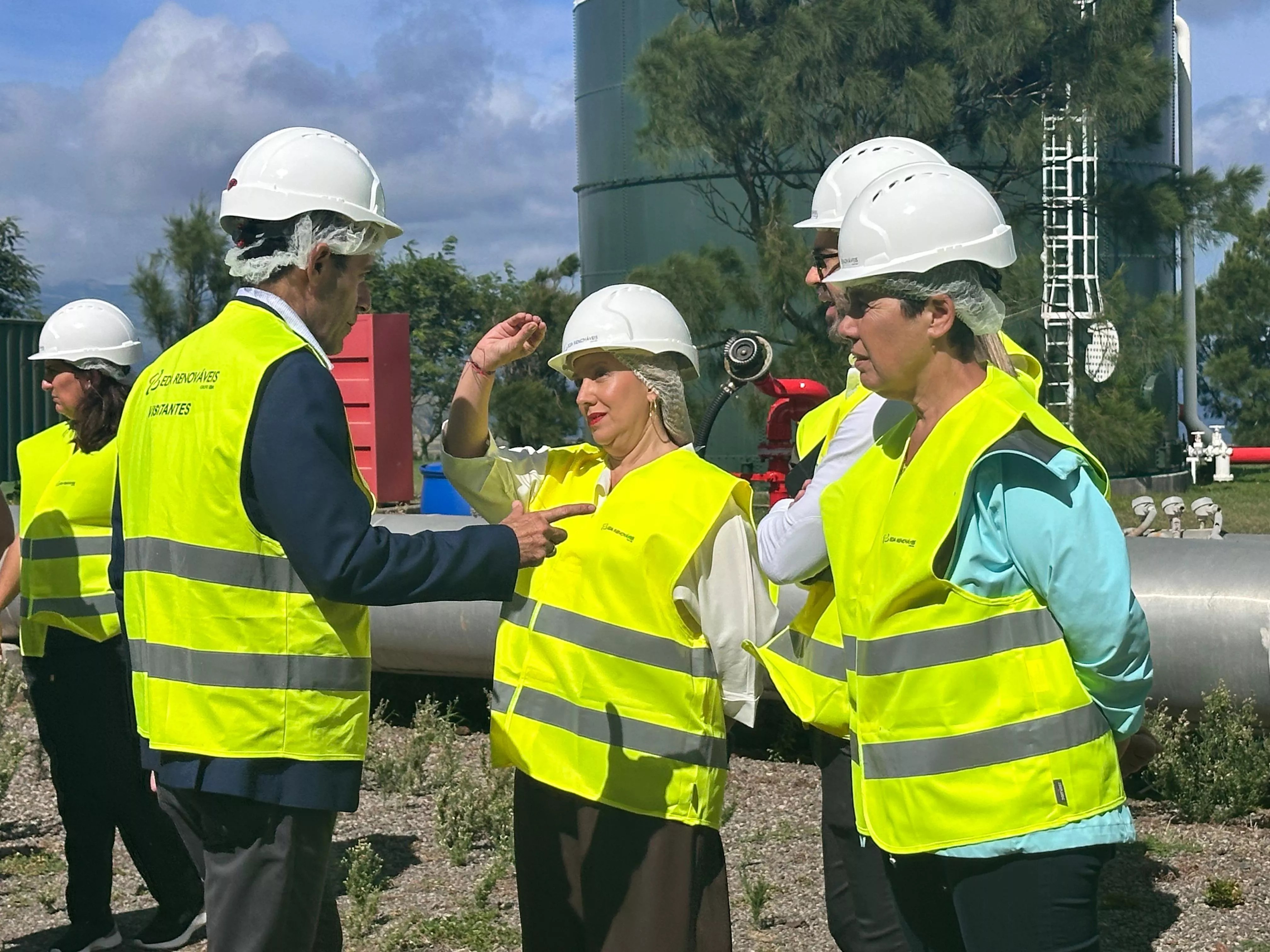
SANTA CRUZ DE TENERIFE, Dec. 13 (EUROPA PRESS) –
The Parliament of the Canary Islands has approved this Tuesday, with the rejection of the Mixed Group and the Popular Group, the Canary Islands Law on Climate Change and Energy Transition, which aims to regulate the measures aimed at mitigating and adapting to climate change, as well as guaranteeing the energy transition and climate action.
The Law, structured in a preliminary title and five titles, consists of ninety articles, three additional provisions, three transitory ones, one repeal and eight final ones. The regulatory text sets, among other objectives, the decarbonization of the Islands in 2040 or the creation of management and coordination bodies that guarantee the development of its articles, as is the case of the Climate Change Agency.
Once the Law was approved, the Minister of Ecological Transition, José Antonio Valbuena, intervened to thank the forces of the Pact of Flowers for allowing him to be in an “indelible” professional and personal stage and for allowing him to have faced this challenge. He also thanked the entire Ministry team and apologized to the opposition because, according to what he said, “perhaps I have not been able to explain the important elements of the Law”, while he was convinced that “the future for the Canary Islands has very important lights of optimism”.
For the Mixed Parliamentary Group, Ricardo Fernández de la Puente (Cs) affirmed that with this law the Government of the Canary Islands “has passed the roller in a discriminatory way” on the work carried out by the opposition, which has presented more than 200 amendments, of which that only 37 have been assumed, thus discarding the possibility of making “a law for all”.
Fernández de la Puente criticized that it is a law “made by fundamentalist theorists who do not know how the real world works beyond their offices”, that “it was born under duress and that it does not include the contributions of experts, the Administration itself or those of the opposition”, which “will produce paralysis, conflict and economic sanctions for not being able to comply,” he warned.
For her part, the deputy of the Popular Party Luz Reverón warned that the Canary Islands Law on Climate Change is going to paralyze economic activity in the Islands because it is “bad in form and substance”; a “100% interventionist” law that “will only bring more bureaucracy and more economic burden for society” and that supposes the creation of a “new beach bar” such as the Canary Islands Climate Action Agency.
Luz Reverón accused the Government of not having wanted to “never” work to get the best Law out of the “arrogance” that characterizes it, “imposing” the criteria of the Ecological Transition Minister, José Antonio Valbuena, because of the 98 amendments presented by the Popular Party, 82% were rejected “with the sole argument of no why not.”
For all this, he promised that, if the PP manages to govern the Canary Islands after the elections next May, it will bring a new law “that is real and that is not sectarian and that does not imply the economic paralysis of the Canary Islands”.
From the nationalist ranks, Jesús Machín (CC) wondered what could have happened so that in just 72 hours “the same ones who have despised” the opposition for a whole year have gone from “wanting nothing” of the contributions of the Nationalist Group Canary “to want almost everything”, approving 95% of his amendments. “Either they weren’t that bad or it was just a block for a block.” Thus, Machín thanked the counselor for having “reconsidered” and understanding that the Nationalist Group only wanted to make a “substantially better” text.
“PRECURITY AND RAPIDITY”
On behalf of the groups that support the Canarian Executive, Jesús Ramos Chinea (ASG) defended that the Canarian Law on Climate Change required “hurry and speed” because, if they had waited for what the opposition parties proposed, “we would be talking about the law of the deserts of the Canaries”. He also added that this regulation meets one of the Government’s objectives, such as laying the regulatory foundations to meet sustainability objectives, as well as being an example as a region of what the fight against climate change means.
Deputy Manuel Marrero (Sí Podemos Canarias) agreed with the “rush” with which this law had to be approved in order to provide improvements from the Canary Islands in the fight against the climate emergency. Meanwhile, Luis Campos (NC) stressed that it is a law “of the utmost importance” and with “an essential value” that comes “twenty years late” and that he would like it to be “much more revolutionary”, and that it is a consequence ” of the brutal impact that climate change is having on the planet”.
Lastly, Mauricio Roque, from the Socialist Group, highlighted that the Canary Islands Law on Climate Change is the norm that has received the most contributions in the history of the Islands and highlighted that it has been approved by 58 deputies and rejected by only 12, to whom accused of having introduced a “covert amendment to the totality”. “They did not want the Law and they did everything possible not to be in the Law,” he added.
















